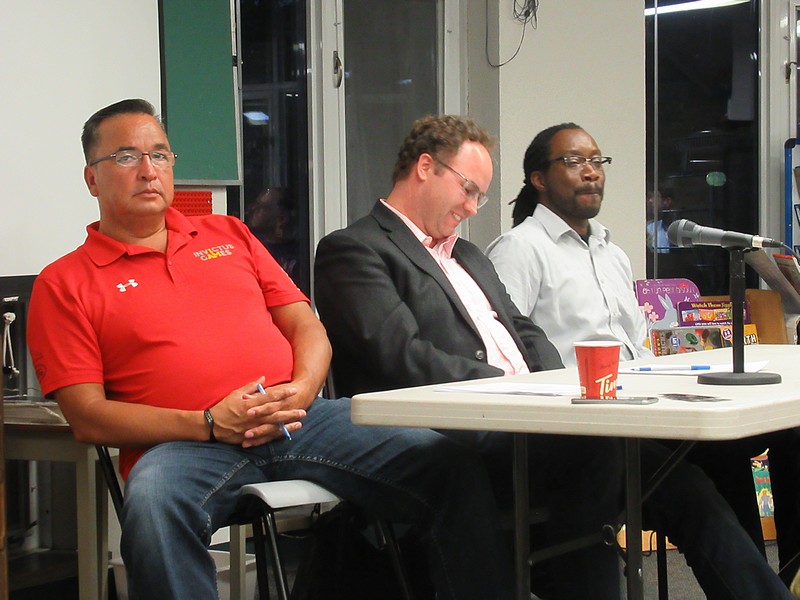Public school curriculum progress stalled in Ontario

Jane Waterston
“Twenty years of advancement is stalled in Ontario,” reported Tim O’Loan to a room of concerned parents and educators at Lady Evelyn School on September 13.
He and two other speakers formed a panel of concern about the Indigenous curriculum, the health curriculum, and the anti-racism initiative in Ottawa public schools in the wake of last spring’s provincial election. The evening, organized by trustees Erica Braunovan, Shawn Menard and Chris Ellis, was not a municipal campaign event but an occasion for frank conversation with board staff and parent associations.
An advisor to Senator Murray Sinclair of the Truth and Reconciliation Commission, O’Loan confirmed that Ontario’s Ministry of Education is dialing curriculum back to 1998—to the days before the Commission’s calls to action #62 and #63 set a path to reconciliation for Ontario educators. In November 2017, ministry officials had started implementing curriculum revisions and improving resources for teachers in collaboration with First Nations, Métis and Inuit partners.
Chris Farley Ratcliffe, interim executive director of Planned Parenthood, confirmed that the health and physical education curriculum is again, to his dismay, relying on 1998 materials and standards. The controversial, now rejected, 2015 health curriculum had started to address concerns about the language used in conversations about body parts and growth, the development of gender identity and expression, the importance of consent (not just abstinence), and sex and technology. The assumption, he said, that parents have the time, capacity and knowledge to educate their children about these matters comes from a place of privilege.
Richard Sharpe, charismatic co-founder of the 613/819 Black Hub that confronts institutional anti-black racism, stressed the importance of race-based, standardized data about student performance and experience in our schools if they are to become peacefully inclusive and diverse. Racism exists in Ottawa schools, and black children are generally faring worse than their parents did 25 years ago. Drop-out and incarceration rates are climbing, hopes and expectations are tanking. A UN review in 2015 on the state of blacks in Canada found them on par with Indigenous populations. That is especially insidious, he said, because society’s attitude to our black population is, in comparison, normalized, i.e. very hard to change and unlikely to shift without concerted, data-based, effort.
Sharpe despairs that there is now a delay of three to five years in getting race-based data on attendance, performance and outcomes for children in our schools, so we do not fully see what is happening to black students and a generation is going to lose out. What he sees now, based on his own son’s experience in OCDSB schools, is a notable absence of black role models other than janitors, and lots of encouragement to excel in sports but little else.
OCDSB superintendent Dorothy Baker provided additional details on the state of the Indigenous curriculum here in Ottawa. New materials for grades 4-8 (Phase 1) covering social studies, geography, Canada and World studies, are written and being implemented. Phase 2 is postponed. Nonetheless Baker says, “We are going ahead to continue our response to the calls to action.”
As for the Board’s commitment to inclusion and equity, Baker said it is still planning to go ahead with gathering identity-based data, although the standards are not yet determined and there has been no word about funding for the program.
Parents in the room worried about the province’s “snitch line” for anonymous complaints and how children’s questions about sexuality will be handled by teachers without guidance from a curriculum.
A note of hope came from the first speaker, Tim O’Loan. The provincial government, he said, “has ceased everything.” But he remains confident that youth will change how we are doing things.